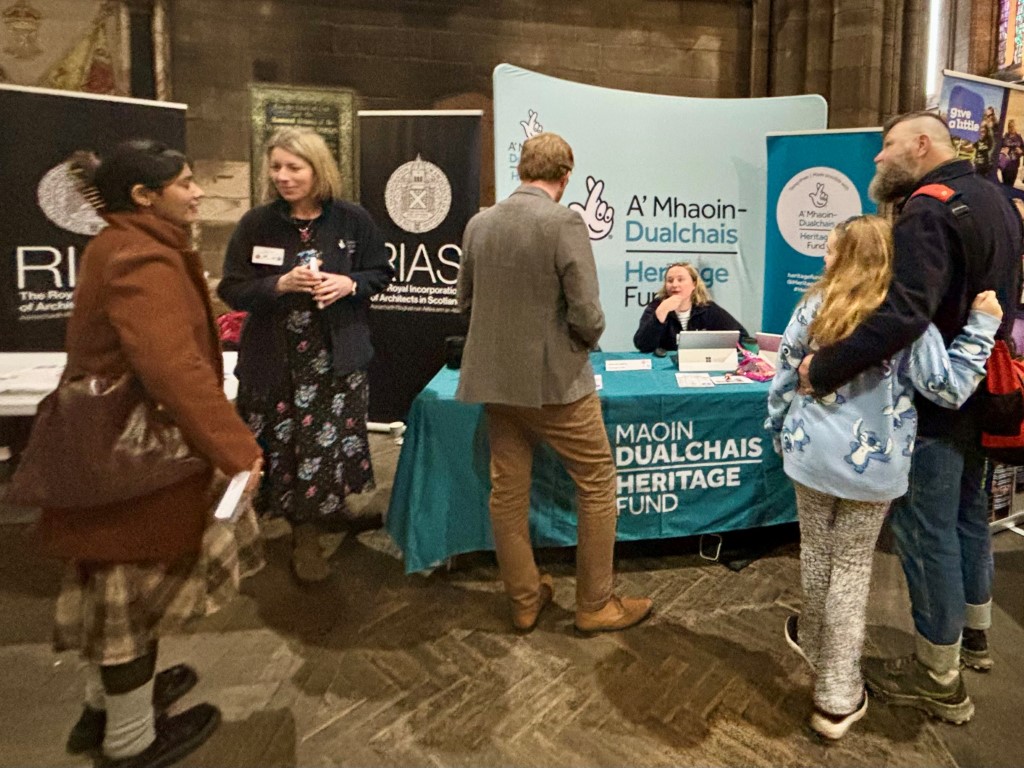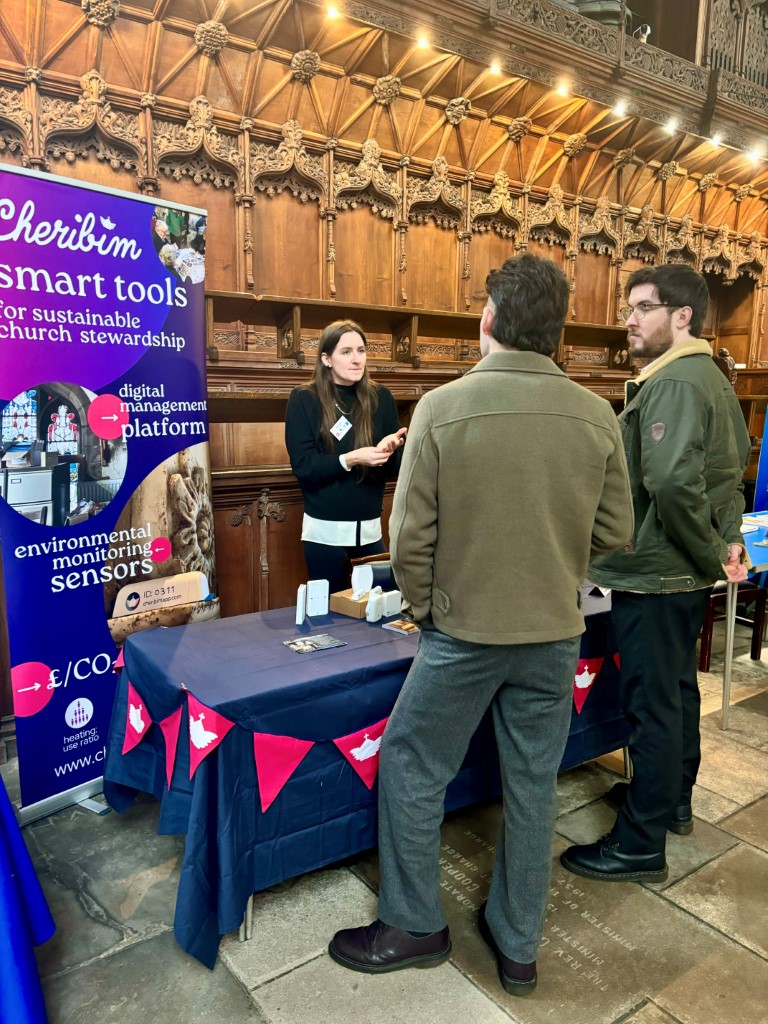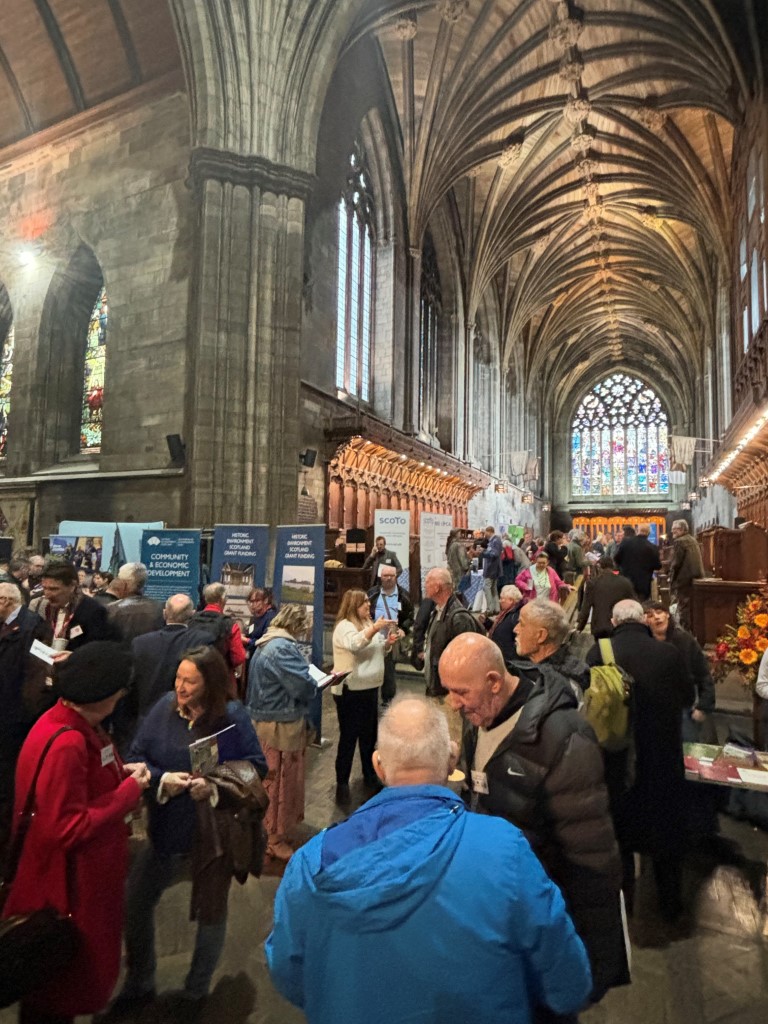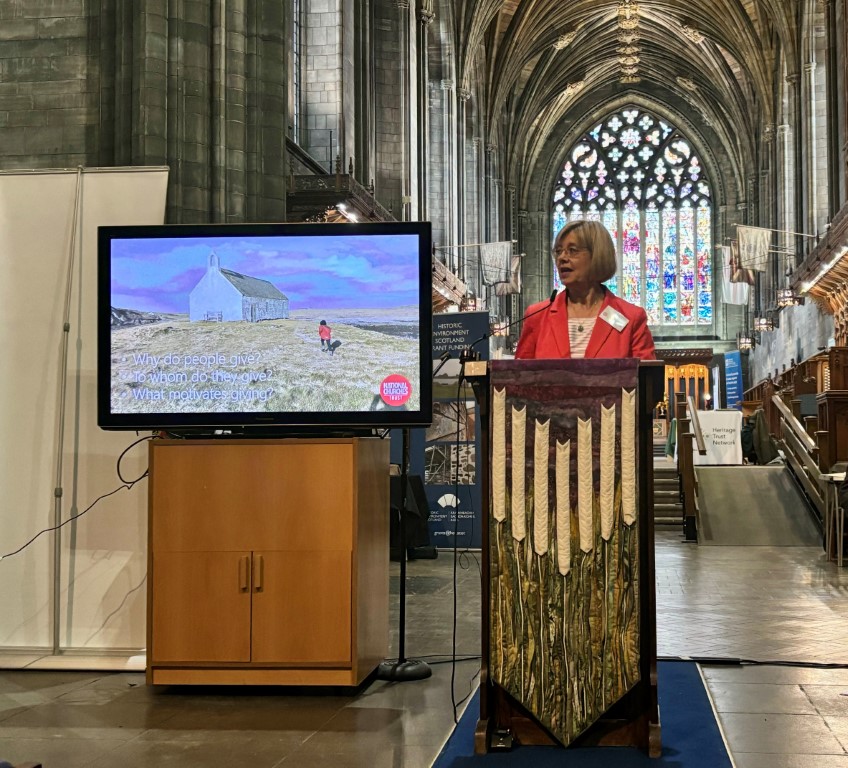High costs of repairs, dwindling congregation numbers and lack of financial support are making the future of many church buildings in Scotland uncertain.
However, on Friday 1st November, a day conference – the first of its kind – was held at Paisley Abbey to equip places of worship to weather these uncertain times.
More than 250 people from across Scotland gathered at Paisley Abbey to hear inspiring talks about fundraising, community ownership of churches, marketing, and creating a sustainable income. There was also a chance for them to meet with organsiations that fund church repairs and that could offer advice on tourism, climate change and grants to equip them to keep their place of worship open and in use.
The event was put on by the National Churches Trust (thanks to The National Lottery Heritage Fund) in partnership with Historic Environment Scotland, Historic Churches Scotland, Scotland’s Churches Trust and Paisley Abbey.
Other organisations that had stalls and were there to connect with churches included the Benefact Trust, the Ecclesiastical Society and The National Lottery Heritage Fund, which announced their first funding award in Scotland under their exciting new £15 million Places of Worship strategic initiative, launched last month.



Half a million pounds has been awarded to the Development Trust Association Scotland for its New Futures Programme, with a key focus on former places of worship.
The Heritage Fund expects a further £85 million to be awarded through National Lottery Grants for the Heritage grants programme over the next three years across the UK to support current and former Places of Worship of all faiths.
Churches also heard about new ways they could fundraise for their church – including by adding in a contactless donation machine, which has been proven to increase donation amounts.
Claire Walker, Chief Executive of the National Churches Trust, who spoke at the conference to give advice on how churches can successfully fundraise, said:
“The situation in Scotland is stark with The Church of Scotland planning to close as many as 30-40 per cent of its churches; this is in addition to other denominations struggling with high repair costs for their buildings. We face a future without a local church.”
“Our research shows that if you close a church, a third of the congregation will stop attending church altogether – they will not attend another church or stream a service online.”
“Church buildings in the UK contribute over £55 billion every year in social good from the vital community services they host and run. But they also hold our nation’s history and heritage – once they’re gone, we’ve lost them forever.”
“As the National Churches Trust, we are determined to work with organisations in Scotland – and across the UK – to help keep churches open.”
Victoria Collison, Executive Director at Historic Churches Scotland, said: “At such a challenging time for churches in Scotland help really is needed, but knowing what support is available and where to get it can be difficult. Providing advice and inspiration in areas from fundraising to building maintenance, Net Zero, tourism, volunteering, and community ownership, Historic Environment Scotland, Historic Churches Scotland, Scotland’s Churches Trust and the National Churches Trust worked together to deliver the first event of its kind under one magnificent roof at Paisley Abbey.”
Caroline Clark, The National Lottery Heritage Fund Director for Scotland, said: “The National Lottery Heritage Fund has been supporting places of worship for 30 years. Since 1994, we’ve invested more than £1billion into more than 8,200 places of worship across the UK.”
“We recognise the scale of the challenges facing places of worship and those who care for them and want to be as creative and responsive as possible to the sector’s needs, now and in the future.”
“We’re really pleased to support this strategic project with Development Trust Association Scotland as it will help communities explore new uses for former places of worship and, where appropriate to look at community ownership models giving these cherished buildings a bright and sustainable future.”
Events like these help churches connect to funders, but also show them innovative and creative ways they can keep their church open and in use. This event is the first of its kind, but with great collaboration happening across the heritage, community, faith, tourism and climate sectors, more events and opportunities will be planned for next year.


